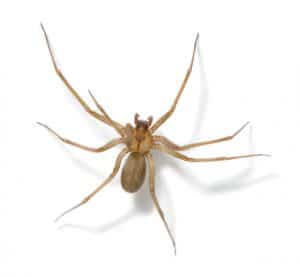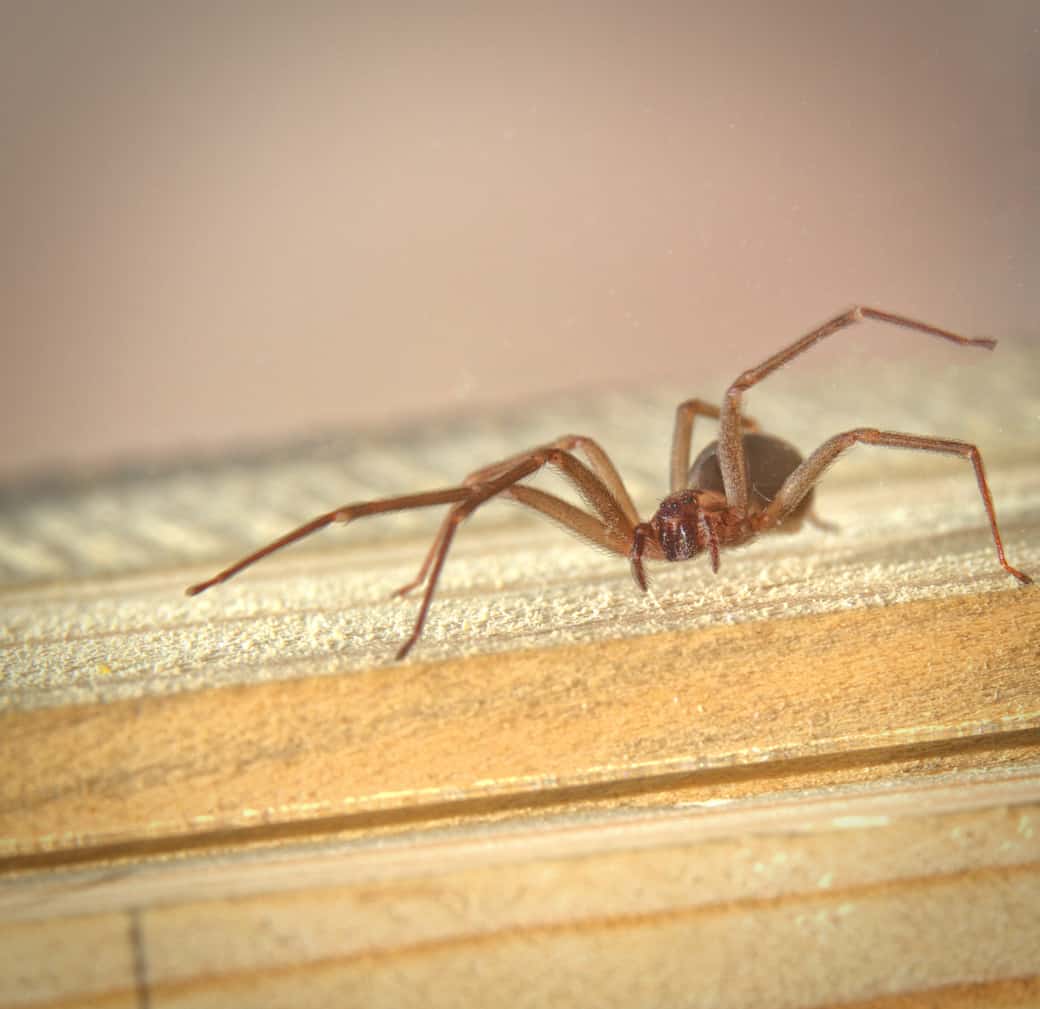What Happens When You Get Bitten By A Brown Recluse In Tennessee
The brown recluse spider has become famous because of reports of it’s necrotic bite. First of all, we see pictures in the media of skin lesions and horrible reactions with this spider’s bite. These events can occur but there is a lot more to the story when we gather all the information.
The most commonly identifiable feature of this spider is the violin or fiddle shape mark located on the spiders back.
Where Are Brown Recluse Spiders Commonly Found?
Brown recluse spiders (Loxosceles reclusa) are commonly found in the central areas of the United States. They range from Nebraska south into Texas. The range moves east into Georgia and Tennessee and north into Kentucky and southern Illinois.
There are some related species mostly found the the southwestern desert areas. Sometimes medical facilities in other parts of the country may mistakenly diagnose a bite like injury as a brown recluse bite.
Typical Behavior Of A Brown Recluse Spider In Tennessee
The brown recluse spider does not chase people down and try to bite them. Like their name they are reclusive and prefer to hide in out of the way areas. These areas might include basements, attics, storage areas and outdoors. They will also hide in storage boxes, unused shoes and piles of clothes.
These spiders generally run when disturbed. They will also travel around during the quiet of the night in search of food.
These spiders are not very aggressive and people could be bitten by a few related circumstances.
Spiders like to hide in unused shoes and piles of clothes. People put on the clothes containing the spider and the spider bites. This can also happen if someone rolls over on a spider in bed. Another instance could be moving storage items and grabbing the spider.
Medical Conditions Relating To Brown Recluse Spiders In Tennessee
The medical condition relating to brown recluse bites is call loxoscelism. The venom mainly affects blood and tissue.
People may react in different ways to the spider bite. The majority of bites may show up as a mild reaction. This could include a red mark or swelling and possibly swelling and pain. These instances can generally be taken care of by simple first aid and time.
More serious conditions are not as common but could occur. These are dermonecrosis and systemic reactions.
Serious conditions of a brown recluse bite
Dermonecrosis is the reaction that makes the most news. The bite will result in a developing serious purple lesion around the bite with loss of skin tissue. This wound would require long term treatments.
Systemic reactions are very rare but cause major concerns with the circulatory system and damage to the kidneys. This condition is a major concern especially with children.
Brown recluse spider bites are not very common in infested homes. Many studies have shown no residents have been bitten sharing homes with hundreds of infesting spiders for years.

Brown Recluse Spider
Some interesting info about brown recluse bites:
- Most brown recluse bites result in only a red mark and little swelling.
- Brown recluse bites are somewhat rare when compared to numbers of spiders infesting a home.
- The necrotic bites seen in pictures are not as common as your might think.
Other conditions can often be misdiagnosed as a brown recluse spider bite. If mistaken for a bite, it could allow the other condition to progress.
These conditions could include:
- Bacteria, fungal or virus infections
- Cancers
- Diabetic ulcers
- Bed sores
- Lyme disease
- Medicine reactions
Even though most brown recluse spider bites may not show a major reaction, it is always best to seek medical attention. Most noteworthy, if you travel to a medical facility for a diagnosis always try to bring the spider if possible.
Connect With U.S. Pest Protection
Finally, keep up with the latest pest news at uspestnews.com. Connect and follow us on social media! Facebook | Twitter | Instagram | LinkedIn or YouTube. Need our services? Contact Us today!

